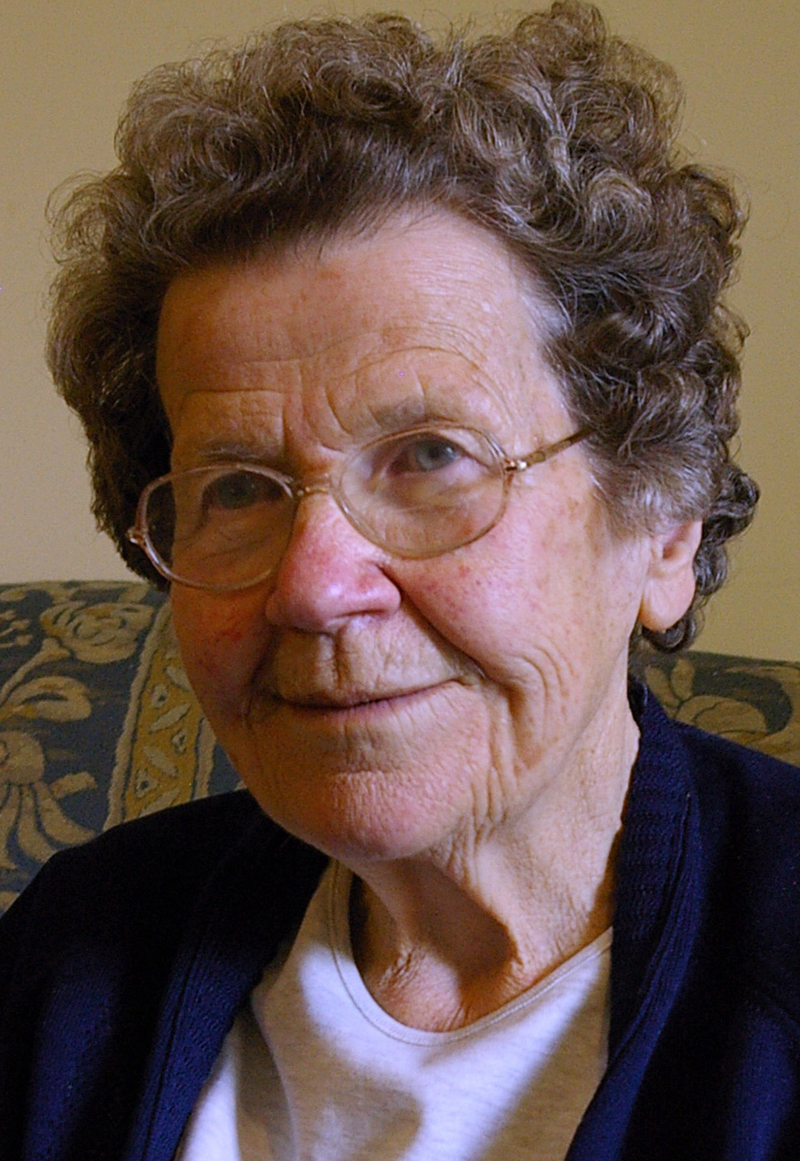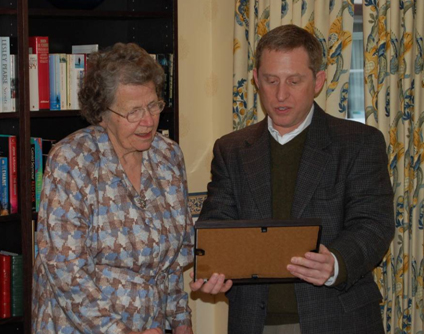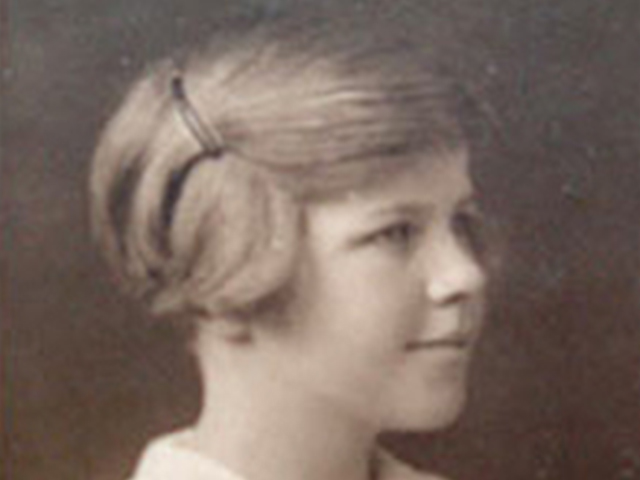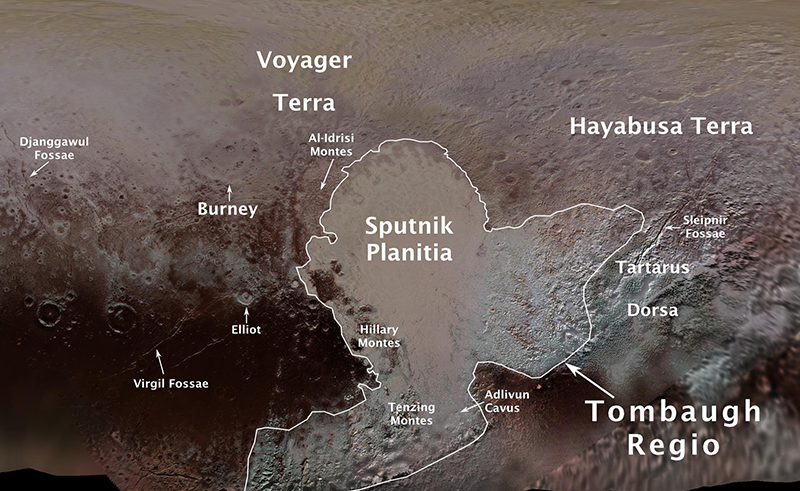
Venetia Burney Phair (1918-2009)
The Girl Who Named Pluto
Venetia Burney Phair was an accountant and taught economics and math in England. But she will best be remembered for what she accomplished at age 11 – giving Pluto its name.
In an interview with NASA in January 2006, Phair said she offered the name Pluto over breakfast with her mother and grandfather. It was March 14, 1930, and her grandfather, Falconer Madan, had announced that scientists discovered the ninth planet.
Mrs. Phair died April 30, 2009, at her home in Epsom, England, at age 90.
"Venetia's interest and success in naming Pluto as a schoolgirl caught the attention of the world and earned her a place in the history of planetary astronomy that lives on," said Alan Stern, the principal investigator for NASA's New Horizons mission that flew by Pluto on July 14, 2015.
In June 2006, the New Horizons team renamed the spacecraft's Student Dust Counter instrument in her honor, calling it the "Venetia Burney Student Dust Counter" (VBSDC, or just "Venetia" for short).

Six months later, in a small ceremony in Mrs. Phair's home, Stern and SDC Principal Investigator Mihaly Horanyi presented her with a plaque, certificate, and spacecraft model to commemorate the renaming.
"She was a thoroughly intelligent, likable, and endearing woman," Stern said.
NASA interviewed Venetia shortly before the January 2006 launch of the New Horizons mission to explore Pluto and the Kuiper Belt. This is an excerpt from the interview:
I don't quite know why I suggested it. I think it was on March the 14th, 1930, and I was having breakfast with my mother and my grandfather. And my grandfather read out at breakfast the great news [about the discovery of the planet] and said he wondered what it would be called.

For some reason, after a short pause, I said, "Why not call it Pluto?" I did know, I was fairly familiar with Greek and Roman legends from various children's books that I had read, and of course, I did know about the solar system and the names the other planets have. And so I suppose I just thought that this was a name that hadn't been used. And there it was. The rest was entirely my grandfather's work.
That's exactly right. He was retired. He had been Bodleian's Librarian, which is the head librarian in the Bodleian at Oxford, which is the university library of course.
That is correct, yes. Professor Turner had been Astronomer Royal in the past and was a professor at Oxford. My grandfather dropped a note to him. He was, on that day, attending a meeting in London of the Royal Astronomical Society. They were all thinking about names, but for some reason, none of them thought of Pluto.
I just thought it was a name that hadn't been used so far and might be an obvious one to have.
I certainly was thrilled. It was very exciting for a small girl really at the time.
I think my grandfather told me. I'd heard nothing you see. I'd just really forgotten about it for the intervening months. But he was fairly active.
To a limited extent. I think the newspapers were mostly occupied by the exploits of the woman pilot Amy Johnson at the time (Amy Johnson was the pioneering English aviatrix who in May 1930 became the first woman to fly solo from Britain to Australia).
Anyway, there was a certain amount [of publicity] – you know a few papers I think. My grandfather collected any information there was through a press agency and put it into two scrapbooks that I have, which I treasure, and from which I can refresh my memory at times.
Yes, I think that is one of the nicest things about the whole story. I'm so very pleased because he had done that from a much more knowledgeable base that I came upon the name Pluto. It's all been very nice for me really.
I've just seen a photograph of Pluto – I think the first photograph that Clyde Tombaugh was looking at, and the next picture showing that the same little pinpoint had moved a certain degree. I have been to Flagstaff, Arizona, and they were very kind. They showed us around and they showed us the telescope through which it was first seen. [Pluto was discovered by astronomer Clyde Tombaugh at the Lowell Observatory in Flagstaff in 1930.]
No, never, sadly.
Not to any great extent ... it doesn't arise in conversation. You don't just go around telling people that you named Pluto. But quite a lot of friends know and are interested.
Well not really, but sometimes it's nice, sometimes I'm glad to have them know.
I would say, I think, "The best of luck." And I can only hope that they discover all that they want to discover from this probe – which must be one of the most exciting things that has happened astronomically recently.
Yes, it is absolutely amazing, but it is paralleled by almost everything that has happened in the world. I mean we have stepped so far into the future since the 1920s and 1930s. It leaves one absolutely stunned.
Very much. Sadly it gets increasingly difficult to (do this). It's so well lit around here that only the brightest stars really get a look-in unless we have a power outage of course. But occasionally if one is in the country, and it is a good clear night, it is absolutely wonderful.

In August 2017, Venetia made her mark on Pluto again. The International Astronomical Union (IAU) approved the names of several surface features on Pluto, including Burney crater in honor of Venetia Burney Phair.
